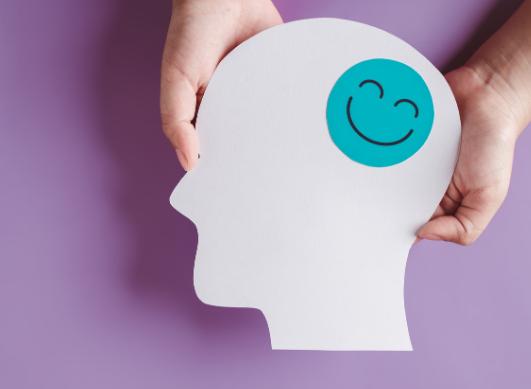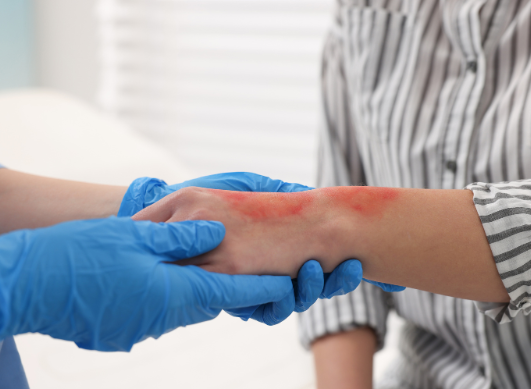- Home
- Forums
- Hypercholesterolemia Forum
- Living with cardiovascular diseases
- 6 atrial fibrillation triggers
Patients Hypercholesterolemia
6 atrial fibrillation triggers
- 102 views
- 4 times supported
- 12 comments
All comments
Go to the last comment

robjmckinney
AmbassadorGood advisor
![]()
robjmckinney
Ambassador
Last activity on 03/02/2026 at 13:42
Joined in 2015
642 comments posted | 14 in the Hypercholesterolemia Forum
64 of their responses were helpful to members
Rewards
-
Good Advisor
-
Contributor
-
Messenger
-
Committed
-
Explorer
-
Evaluator
Because many of your points are in conflict with my wife's many other conditions. Fluid restrictions to prevent fluid retention would stop her keeping good hydration etc. Our solution is monitoring her stats looking for those hidden indicators that trigger an A&E visit. We monitor her Blood Pressure, SP02 levels, weight, Heart Rate, a simple ECG machine etc. daily. This allows us to vary her medicine to her exact needs and we send the stats to the hospital each day for their perusal. Although I will say feedback is virtually useless/non existent from them, it is us that make the decision on whether A&E or out of hours GP is needed.
After three heart attacks my wife knows the signs and how to monitor and deciding the next action needed. But we were taken aback last Christmas as we though she was suffering another. Many hours were spent in A&E chasing a heart attack when it turned out her cold had caused to much C02 and lack of oxygen was the major issue, a good Doctor had a bright idea over a meal. But it turned out it was lack of oxygen was an issue why she ended up in ICU for two weeks. It was an idiot Consultant her thought she did not have sleep acnea in her and her COPD meant she did not need oxygen or her breathing machine. Apologising is worthless when you end up on a life support machine for two weeks in a £1200 a day ICU bed.
Next time I will have to stop feeling sorry for myself and monitor more what the Doctors are doing in case they make a fatal mistake.
See the signature
robjmckinney

Unregistered member
This sounds absolutely dreadful. How can a consultant make such a blunder is beyond me to understand. As you are monitoring your wife so closely, you are the best judge of her condition. I hope such a mistake is never repeated
C. Chetwynd
Give your opinion
Survey
Survey
Members are also commenting on...
Articles to discover...

15/05/2018 | Advice
After a heart attack, it is necessary to resume doing sport or to start doing it
Subscribe
You wish to be notified of new comments
Your subscription has been taken into account








Margarita_k
Good advisor
Margarita_k
Last activity on 07/10/2020 at 11:39
Joined in 2016
1,195 comments posted | 18 in the Hypercholesterolemia Forum
2 of their responses were helpful to members
Rewards
Good Advisor
Contributor
Messenger
Committed
Explorer
Evaluator
You can experience atrial fibrillation without visible symptoms, or have a sudden attack without a trigger: this heart condition's symptoms as well as its triggers can be unpredictable. However, it is important to be able to identify at least some triggers, to decrease the frequency of attacks and lower the risk of a stroke.
Some of the common afib triggers include alcohol, smoking, exercise, and over-the-counter cough and cold medications. Here is the list of less known triggers, which can be equally dangerous for your heart:
Medical procedures
Heart surgery as well as any other type of surgery or medical procedure can be a trigger, as it is causes physical and emotional stress which stimulates your heart. Let your doctor know about your atrial fibrillation history before you have any medical procedure, even a minor one.
Travel
Taking a trip can expose you to potential afib triggers. These include becoming overtired, the stress of travel, and a change in sleep patterns, which can trigger the fight-or-flight response. Whenever you travel, get enough sleep, stay well hydrated, and don’t skip meals.
Stress
Stress is a common trigger of atrial fibrillation, and too much stress is like a shot of adrenaline to your heart. Identify your personal stressors and take steps to avoid or defuse them. If you can’t rule out all causes of stress, practice stress-reduction techniques to lessen the impact.
The holidays
“Holiday heart” is a well-documented atrial fibrillation trigger. That’s because the holidays can be a bonanza of triggers, including stress, fatigue, and alcohol use. Alcohol has an especially irritating effect on the heart, and binge drinking is a classic afib trigger. For this reason, it’s important to know your limits.
Air pollution
Atrial fibrillation attacks may go hand-in-hand with air pollution. In one study, researchers followed 176 people with atrial fibrillation with implanted defibrillators that turn on when an episode occurs. Two years’ worth of data from the study showed that there were more attacks of afib when air pollution was high.
The culprit seems to be very fine particles of pollution from cars and power plants that travel deep into the lungs and trigger atrial fibrillation. To prevent an afib episode, check local air quality daily, and don't go outdoors when pollution is high.
Dehydration
Dehydration can trigger atrial fibrillation. Low levels of minerals in the blood (electrolytes), especially potassium, can trigger an abnormal heart rhythm, and when you’re dehydrated, electrolytes are depleted. Dehydration is most common in hot weather, especially when exercising outdoors, but it can also result from an illness that includes vomiting or diarrhea. Be sure to drink enough water on hot days and whenever you're sick.
Atrial fibrillation triggers are abundant and often surprising. Even seemingly happy events, like vacations and celebrations, can trigger an attack. It is important to keep everything in moderation, to avoid as much as possible, the situations that can cause an attack.
_________________________
Which of these triggers has impact on your atrial fibrillation? Do you know any others?
Is it easy for you to determine your triggers?